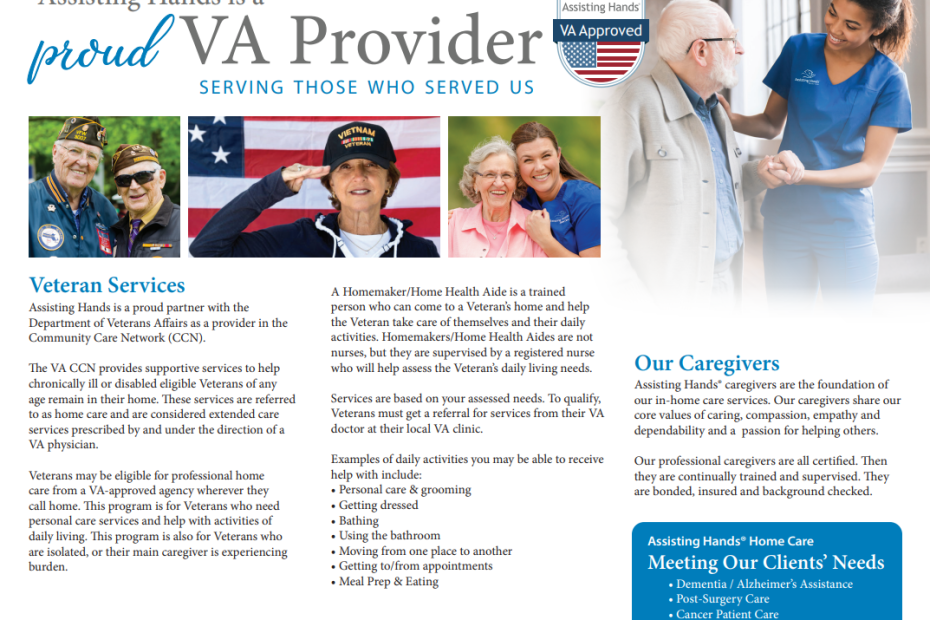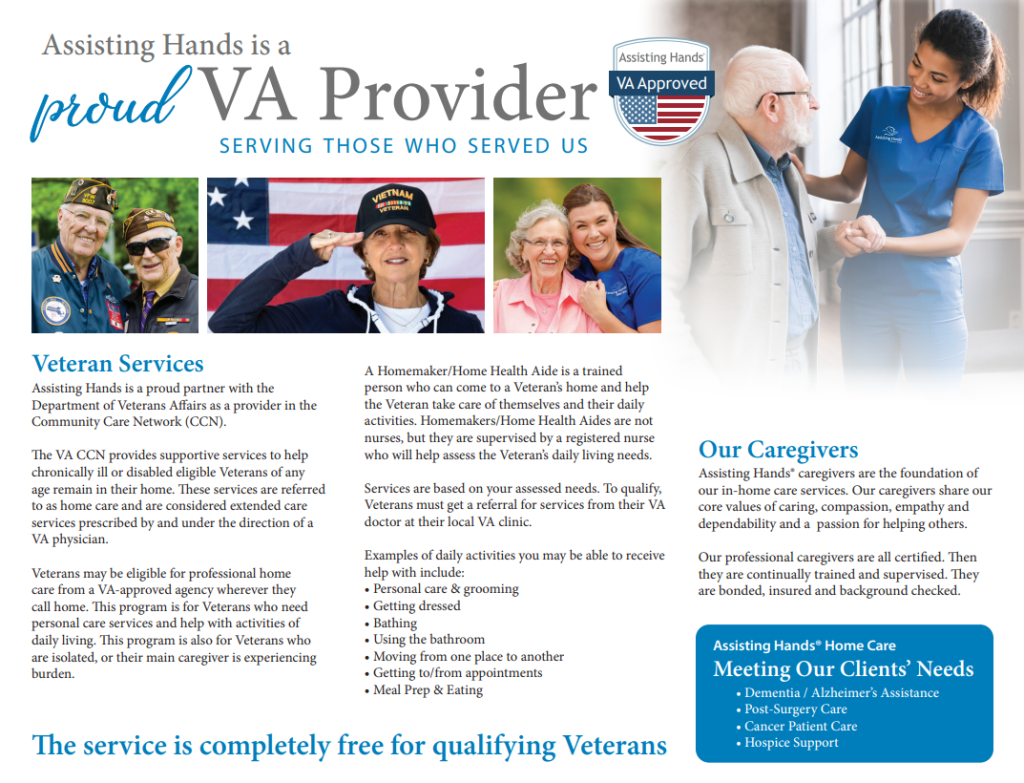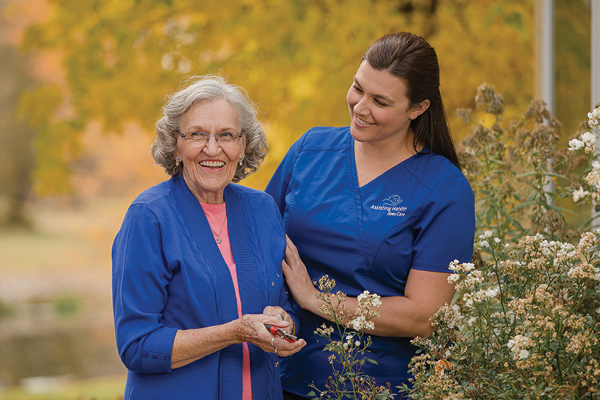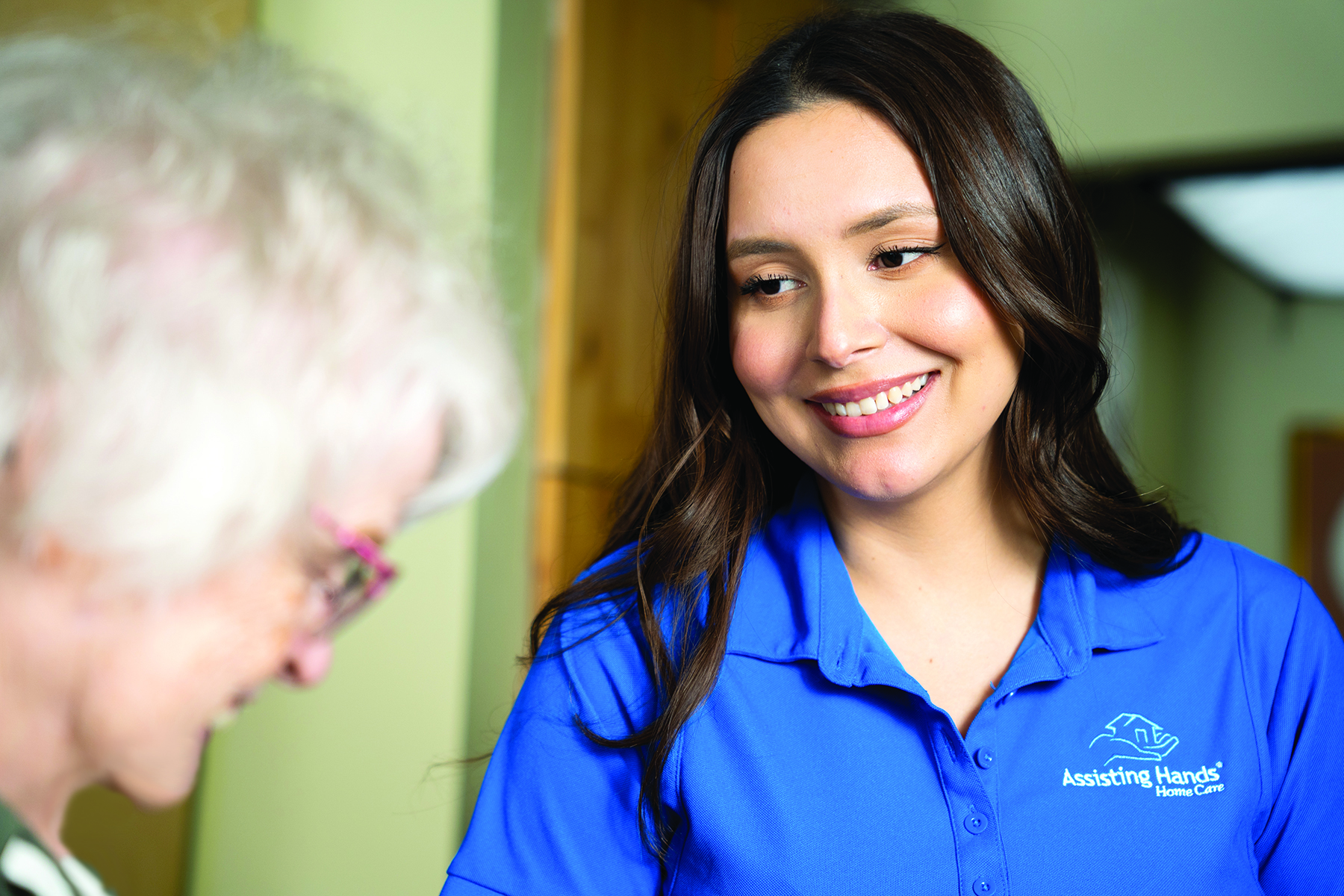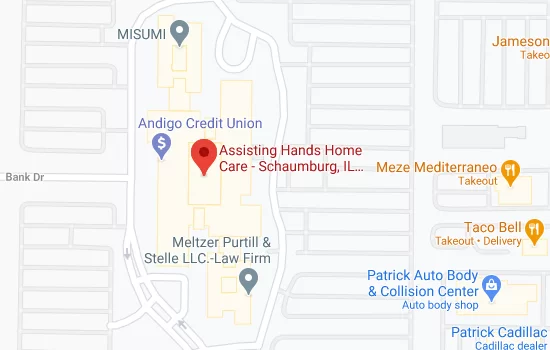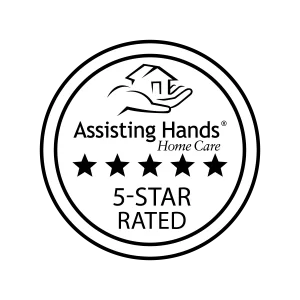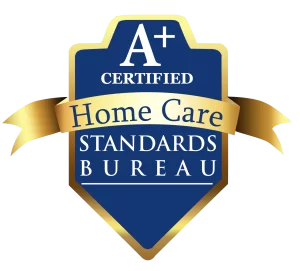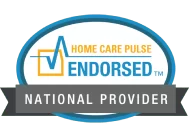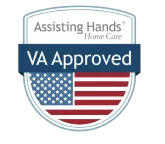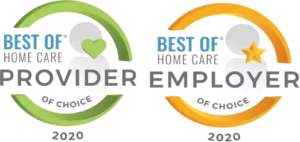There are approximately 8 million Americans over the age of 65 who are veterans of the armed forces, and this number is expected to grow each year as more baby boomers who served turn 65. Many veteran seniors will likely reach a point where they require some level of personal care to ensure their safety and well-being. Aging in place and receiving care at home tends to be the preferred option for seniors who need assistance.
While home care can greatly benefit seniors who age in place, the cost of home care may be difficult for some seniors and their families to manage. However, veterans and spouses of veterans who are eligible for benefits from the Department of Veterans Affairs (VA) can put these benefits towards the cost of home care. VA Aid and Attendance benefits are available to veterans and spouses of veterans who meet certain requirements, and they can help lessen the burden of home care costs.
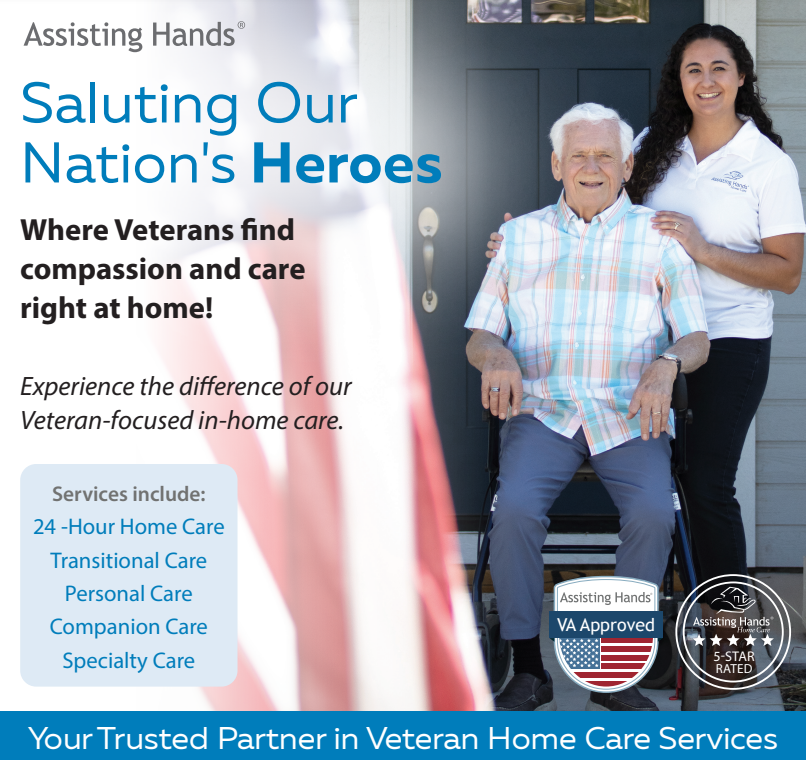
Obtaining VA Benefits
There are many senior veterans and spouses of veterans who are eligible for VA Pension with Aid and Attendance benefits but who do not receive these benefits. There are two main reasons why eligible veterans do not receive benefits, either because they are unaware that they are eligible for these benefits, or because applying for these benefits can be difficult and time consuming.
In this guide, we will explain the eligibility requirements for veterans and the spouses of veterans to receive VA benefits, as well as the application process to get these benefits. The Aid and Attendance benefits can provide up to $2200 per month that can be put towards the cost of home care.
Eligibility for VA Benefits
All veterans and spouses of veterans may be eligible to receive VA benefits if they served active duty in the army, navy, marines, or air force and did not receive a dishonorable discharge. The following are the basic requirements to be eligible for VA benefits:
- The veteran must have served during wartime.
- Spouses must be the widow or widower of a wartime veteran.
- Veterans must have served at least 90 days of active duty and at least one day during wartime.
- The veteran must have received an honorable discharge. It is still possible for those who received a dishonorable discharge to receive benefits which will be discussed in more detail later.
- The veteran and spouses of veterans must be 65 or older.
- The veteran or spouse of a veteran must need assistance with activities of daily living (ADLs) such as bathing, dressing, eating, transferring, etc.
- Must have $123,600 or less in assets. Homes, vehicles, and personal property do not count towards these assets.
- Married couples must have a monthly income of $3000 or less, single veterans must have a monthly income of $2600 or less, and surviving spouses must have a monthly income of $2000 or less.
In addition to these basic requirements, there are other requirements that pertain to certain situations. These requirements include the following:
- Those who enlisted after September 7, 1980, or entered active duty after October 16, 1981, must have served for 24 continuous months or for the full period in which they were called to active duty. However, this requirement may not apply if the veteran was discharged for a disability caused by or made worse by active duty, discharged for a hardship or “early out,” or if the veteran served before September 7, 1980.
- Current and former members of the Reserves or National Guard must have been called to active duty by a federal order and completed the entire period of active duty. Members who had or have active-duty status for training purposes only do not qualify.
- Veterans who served in the Vietnam War in specific locations and time periods are eligible.
- Veterans who meet basic service and discharge requirements and were exposed to hazards while serving within the U.S. or abroad are eligible.
Veterans and spouses of veterans who meet the minimum active-duty service and discharge requirements described above are eligible for VA benefits. If they meet these minimum requirements plus at least one of the following criteria, they may qualify for enhanced eligibility which puts them in a higher priority group and increases the likelihood of receiving VA benefits:
- The veteran receives financial compensation from the VA for a disability connected to their service.
- They were discharged for a disability from something that happened in the line of duty.
- Received a discharge for a disability that was worsened in the line of duty.
- The veteran already receives a VA pension.
- They are a former prisoner of war (POW).
- The veteran received a Purple Heart or Medal of Honor.
- They receive or qualify for Medicaid.
- They were exposed to toxins or hazards during training or while serving on active duty such as chemicals, pesticides, lead, asbestos, certain paints, nuclear weapons, X-rays, and other hazards.
- The veteran served in Southwest Asia during the Gulf War between August 2, 1990, and November 11, 1998.
- They served at Camp Lejeune between August 1, 1953, and December 31, 1987, for at least 30 days.
Can Veterans that Received a Dishonorable Discharge Get VA Benefits?
Receiving an honorable discharge is one of the minimum requirements for eligibility for VA benefits, but those who received a dishonorable discharge can become eligible by applying for a discharge upgrade. Veterans from all branches of the military can apply for a discharge upgrade and if approved, they will be eligible for VA benefits.
Veterans can make a case for a discharge upgrade if they can demonstrate that their discharge was given due to one of the following:
- Mental health conditions including post-traumatic stress disorder (PTSD)
- Traumatic brain injury
- Sexual orientation
- Sexual assault or harassment during military service
Veterans that received a less than honorable discharge may be able to get some VA benefits without a discharge upgrade through the Character of Discharge review process. During this process, the veteran’s record is reviewed to determine if their service can be considered “honorable for VA purposes.” Veterans should provide relevant documentation and find someone who can advocate on their behalf.
Veterans can apply for a discharge upgrade and go through the VA Character of Discharge review process at the same time.
Applying for VA Benefits
Once a veteran or the spouse of a veteran has determined that they meet the requirements for eligibility, they can start their application for VA benefits. Before applying, applicants must gather the following information and materials:
- Social Security numbers for the veteran, spouse, and qualified dependents
- Military discharge papers (may include DD214 and other separation documents), information about military service history, and any details regarding exposure to toxins and other hazards
- Insurance cards for all policies that provide coverage for the applicant, including through a spouse or significant other, for Medicare, private insurance, and insurance through an employer
- Gross household income (income before taxes and other deductions) for the previous calendar year for the veteran, spouse, and dependents that includes income from a job and any other sources.
- Deductible expenses for the past year, which may include certain healthcare and education expenses
There are five different ways that veterans and spouses of veterans can apply for VA benefits:
- Submit an online application for VA benefits.
- Apply by phone by calling the VA’s toll-free hotline at 877-222-8387, Monday through Friday between 8 am and 8 pm ET.
- Apply by mail by filling out a VA Form 10-10EZ and mailing it to the Health Eligibility Center in Janesville, WI. The form must be signed and dated by the veteran or their power of attorney. Veterans using a power of attorney must also submit a Power of Attorney form.
- Apply in person by bringing a completed and signed VA Form 10-10EZ to the nearest VA medical center or clinic. Veterans using a power of attorney must appear in person with their power of attorney.
- Apply with the help of a professional, such as an accredited attorney, claims agent, or Veterans Service Organization (VSO). These professionals understand the application process and will help make sure that the applicant has everything needed to secure their VA benefits.
After submitting the application, the VA will contact the veteran within one week to let them know if their application has been approved. The veteran will receive a letter in the mail and a welcome phone call from the VA in which they can learn more about their healthcare benefits. They will also receive a Veterans Health Benefits Handbook in the mail that will explain their specific benefits. Veterans can then get their Veteran Health Identification Card (VHIC) online or in person at a VA medical center.
VA Home Care from Assisting Hands
Veterans and spouses of veterans who receive the Aid and Attendance benefits from the VA can put these benefits towards the cost of home care. At Assisting Hands Home Care, we provide VA home care services for those who receive VA benefits. The VA home care programs we offer include the VA Home Health Aide (HHA)/ Home Health Program that covers up to 12 hours of home care per week and the VA Respite Program for veterans who need temporary home care.
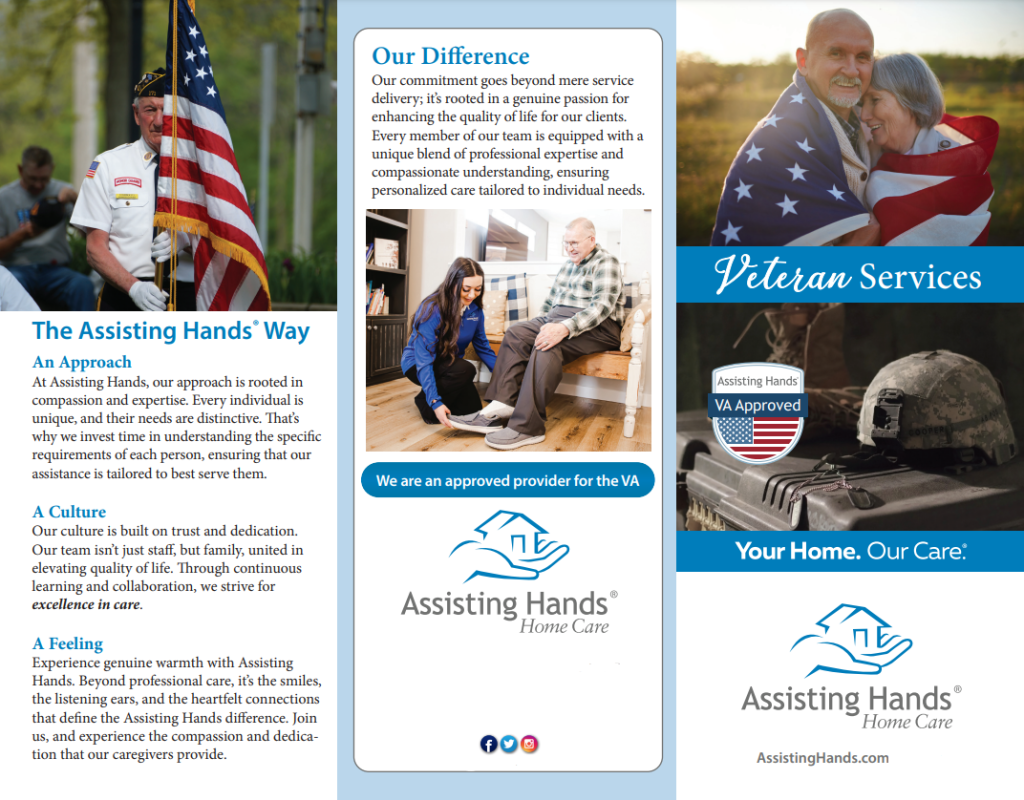
Veterans who receive care under both programs can expect quality, compassionate care from our trained and licensed caregivers. We will assist with activities of daily living (ADLs) and help with tasks around the house such as light housekeeping, meal preparation, and providing transportation. Our caregivers will not only ensure effective care to keep senior veterans and their families safe and comfortable in their homes, but also develop personal relationships with them to be their companion as well as their caregiver.
Assisting Hands Home Care is an approved VA care provider that is proud to provide outstanding home care for our nation’s veterans. If you or a loved one in the Schaumburg, IL area receives VA benefits and is in need of home care, call us at (224) 258-0736 for more about our VA home care services.
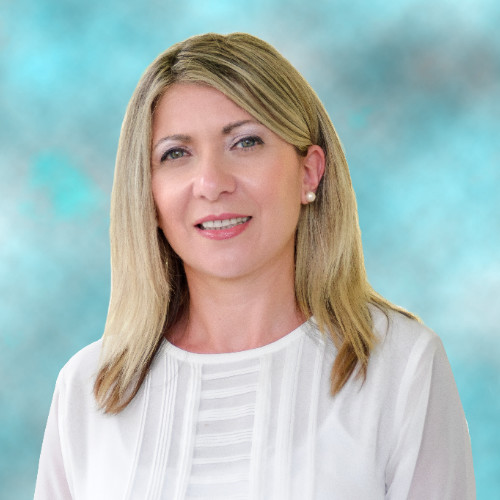
Daniela has master’s degree in electronic engineering with a pedagogical specialty and master’s degree in marketing management.
After completing her schooling, Daniela worked at a hospital for 6 years as the Director of Business Marketing Development and Public Relations.
Starting Assisting Hands Home Care
Daniela spent more than 14 years as the Assistant Vice President of a national bank before becoming a co-owner of Assisting Hands Home Care of Schaumburg.
Her background in public relations and marketing along with her personal experience caring for her mother motivates Daniela to be passionate about helping families in the Schaumburg, IL area find exceptional caregiving services for their elderly loved ones.
Besides providing home care, Daniela enjoys giving back to the community in her free time, supporting various events at St. Peter Parish in Geneva, IL such as fundraising, school projects, charity events, and more. She also enjoys volunteering for the Humanitarian Service Project in Carol Stream, IL. This organization provides seniors with meals as well as food and supplies for children living in poverty.

